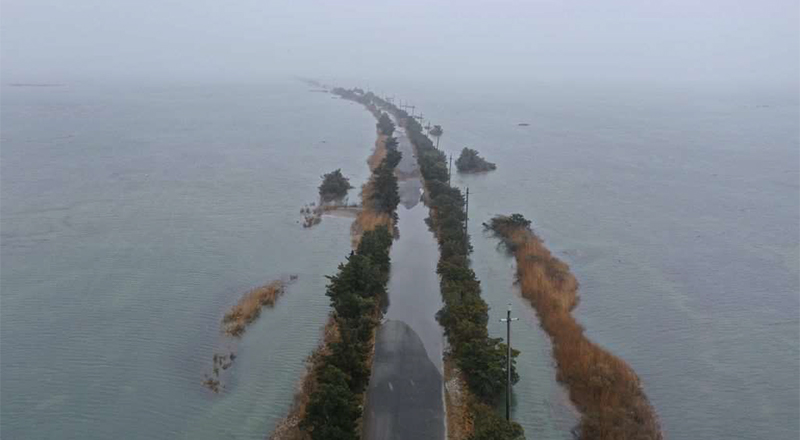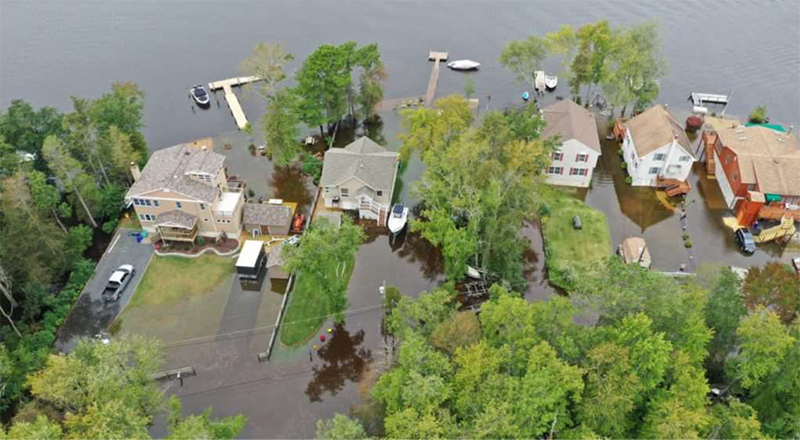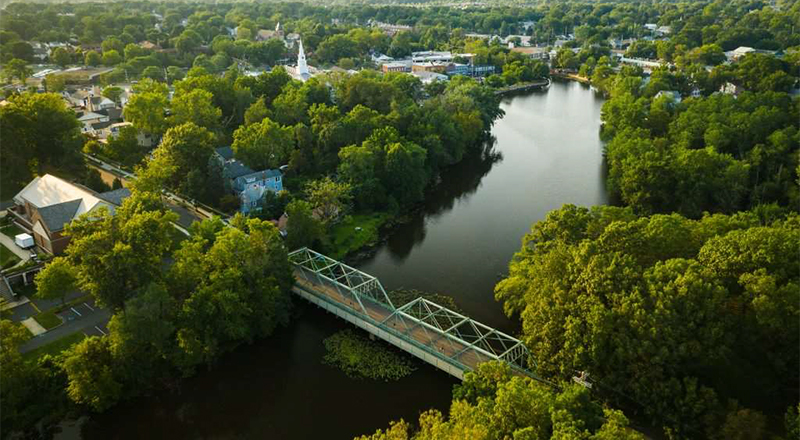
Sea Level Rise in New Jersey
New Jersey is already experiencing adverse impact to public health, safety, and property due to climate change. From increasingly mild winters, more intense rainfall, chronic flooding, and more intense heat waves, the adverse effects of climate change will only increase in the years to come. None of these impacts are more evident or present a higher risk to New Jersey’s natural resources, economy, culture, and property than sea-level rise.
As identified in the New Jersey’s Rising Seas and Changing Coastal Storms: Report of the 2019 Science and Technical Advisory Panel and the New Jersey Scientific Report on Climate Change , sea-levels are increasing at a greater rate in New Jersey than other parts of the world. By 2050, it is likely that sea-level rise will meet or exceed 2.1 feet and increase to 5.1 feet by the end of the century. “Sunny day flooding” will occur more often across the entire coastal area with Atlantic City experiencing “sunny day flooding” 95 days a year and a 50% chance it will experience 355 days a year by 2100.
To address this challenge, New Jersey has developed the Statewide Climate Change Resilience Strategy to guide state agencies and Sea-Level Rise Guidance for New Jersey to assist local decision makers plan for and adapt to sea-level rise.
As New Jersey experiences the adverse effects of climate change, governments and institutions must not defer or delay action. The costs of inaction demand that adaptive climate change response strategies be developed now to ensure the continued protection of our people, property, economy, environment, and way of life. To ensure actions are grounded in the best available science DEP will continue to update this guidance as necessary to ensure it continues to reflect the best available scientific information and sea-level rise projections for the State of New Jersey.
Science and Technical Advisory Panel
The Science and Technical Advisory Panel (STAP) was charged with identifying and evaluating the most current science on sea-level rise projections and changing coastal storms in New Jersey, considering the implications for the practices and policies of local and regional stakeholders, and providing practical options for stakeholders to incorporate sea-level rise science into risk-based decision processes.
Scientific Report on Climate Change
The New Jersey Scientific Report on Climate Change summarize the current state of knowledge regarding the effects of climate change on New Jersey’s environment to inform state and local decision-makers as they seek to understand and respond to the impacts of climate change. This report identifies and presents the best available science and existing data regarding the current and anticipated environmental effects of climate change globally, nationally, regionally, while presenting state-specific information.
Sea Level Rise Guidance
New Jersey is already experiencing adverse impacts from increasing sea-level rise, and the adverse effects will only increase in the years to come. This guidance is designed to aid decision-makers in planning, mitigating for, and adapting to sea-level rise.
Resilient NJ: Local Planning Toolkit
This guidance is a resource for individuals who represent, work, or volunteer for a municipal or county government in New Jersey to understand how their community can proactively plan for the changing climate and build resilience into their local governance. Communities that utilize this guidance can meet their obligations for the Municipal Land Use Law requirements, state Hazard Mitigation Plan requirements, and Plan Endorsement requirements.



















